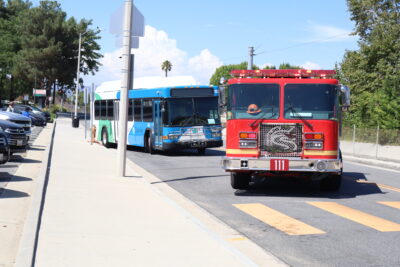I’m fortunate to have a big, extended family with many loving relatives who can step in and care for my child if urgently needed.
Like many people, I also have close friends who are like family. If my family and close friends are not able, then I may ask the parents of my kid’s closest friends to help. These are the kinds of relationships parents have to fall back on when they need someone they trust to take over in an emergency.
In today’s unpredictable world, emergencies can strike any family — whether due to illness, accidents, or sudden absence of a parent or guardian. Recognizing this, California lawmakers introduced Assembly Bill 495, known as the Family Preparedness Plan Act of 2025, to give families the tools they need to ensure their children are protected, safe and cared for during unexpected disruptions.
At its core, the Family Preparedness Plan Act of 2025 helps parents and guardians create legally sound plans for short-term caregiving.
These plans protect parental choice and allow parents to decide who cares for their children when they are unable, to ensure that children continue to receive necessary care — emotional, educational and medical — even when their primary caregiver is temporarily unavailable.
Given that the purpose of this bill is to protect kids and families, it’s disappointing that some are misrepresenting the bill and using it as yet another political ploy to divide our community with lies about what the bill does and scare people unnecessarily.
Giving Parents More Options
The Family Preparedness Plan Act of 2025 expands existing California law to allow parents to authorize trusted adults to act as temporary caregivers. Under current law, the Caregiver’s Authorization Affidavit is a legal document that already lets relatives help enroll children in school and access limited medical care.
This bill broadens that ability by letting close family friends, godparents, or other community members step in, so long as they have a well-established and trusted relationship with the family, and the child is currently living with the temporary caregiver. An affidavit is not valid if this is not the case.
This change is especially helpful for single-parent households or families without nearby relatives. In the event of a medical emergency, travel delay, or hospitalization, a parent can designate someone they trust to temporarily make decisions on their behalf. The process remains voluntary, and parents retain full legal custody and rights.
Prioritizing Children’s Safety and Stability
When emergencies arise, the last thing a child needs is uncertainty. The Family Preparedness Plan Act of 2025 addresses this by allowing families to prepare in advance, avoiding the chaos that often results when no clear plan is in place.
By enabling designated caregivers to consent to medical, dental, mental health and school-related services, children are far less likely to experience disruptions in care, schooling, or emotional support.
The legislation also allows for a short-term guardianship that can be secured through probate court process. This means parents can, ahead of time, file documents with the court that temporarily grant another adult the authority to care for their children — without giving up custody or going through a lengthy court battle. This can be vital during urgent medical events, extended travel, or recovery from injury.
Built-In Protections Against Misuse
The Family Preparedness Plan Act of 2025 includes important safeguards to prevent misuse. The caregiver designation does not grant legal custody, cannot be used to take a child out of school, and must be based on mutual trust between the parent and the designee.
In fact, the bill strengthens pickup procedures by requiring child care facilities to use emergency procedures previously established with the parent if they know a parent is unable to care for the child.
The law does not override existing child protection laws or the authority of law enforcement or child welfare agencies that include many protections against kidnapping, and human and sex trafficking.
In fact, strengthening this process for parents will guard against children being lost in legal uncertainty, vulnerable to abuse and abduction, or inappropriately placed with child protective services or foster housing when a caring family member or family friend is available and preferred by the parent. Parents should be able to choose who cares for their children when they cannot.
Child welfare organizations, anti-human trafficking organizations, legal experts and education advocates have all voiced strong support for the Family Preparedness Plan Act of 2025. They emphasize that it creates a common-sense framework to help families plan ahead, avoid unnecessary trauma and give children continuity in care — regardless of the emergency.
The Family Preparedness Plan Act of 2025 gives families peace of mind in uncertain times. By making it easier to plan for temporary caregiving with trusted adults, the law helps keep children safe, stable and cared for when it matters most.
Whether dealing with health issues, job demands, or sudden emergencies, families now have a legal tool to be prepared and keep their kids safe and supported — because every child deserves continuity, comfort and care.
Pilar Schiavo, D-Chatsworth, represents the 40th Assembly District, which includes most of the Santa Clarita Valley in addition to the northwest San Fernando Valley. “Democratic Voices” appears Tuesdays and rotates among local Democrats.










